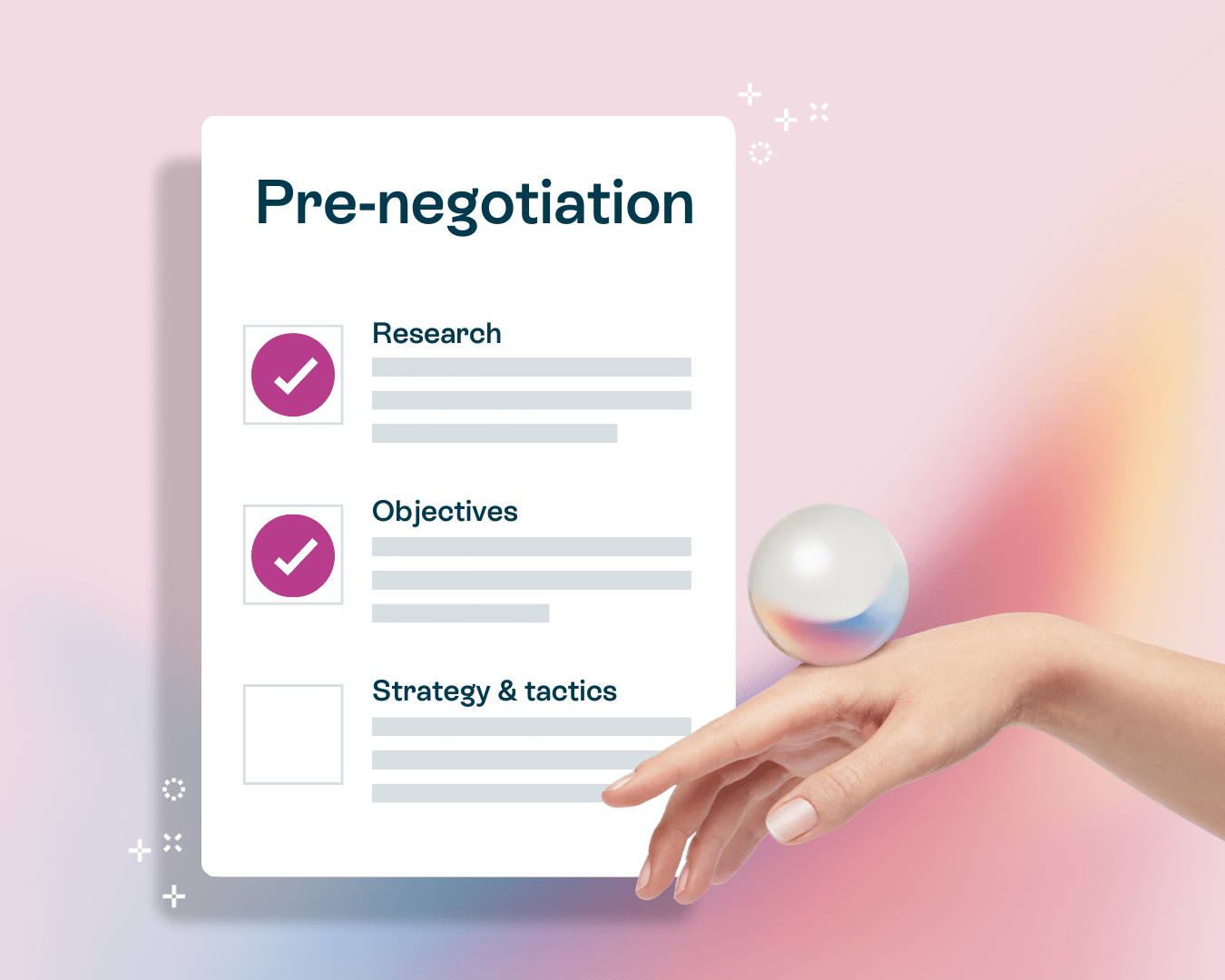Negotiation is a critical skill in today’s fast-paced business world. Whether you’re trying to secure a new partnership, land a major deal, or resolve a conflict, your ability to negotiate effectively can make or break your success. In this article, we will explore the key strategies for successful agreement negotiation and how you can hone your skills to become a master negotiator.
Understanding the basics of negotiation
Before diving into the strategies, let’s start by defining what negotiation actually is. It is a process where two or more parties come together to reach a mutual agreement or resolve a dispute. It involves exchanging ideas, exploring alternatives, and making compromises to find a solution that satisfies all parties involved.
Now that we have a clear understanding of negotiation, let’s explore why it is so important in the business world. Negotiation is the cornerstone of successful business relationships. It allows companies to secure favorable deals, resolve conflicts, and establish mutually beneficial partnerships. In short, effective negotiation skills can give you a competitive edge in today’s crowded marketplace.
When it comes to negotiation, preparation is key. Before entering into any talks, it is important to gather as much information as possible about the other party’s needs, interests, and objectives. This will help you tailor your approach and come up with creative solutions that meet both parties’ goals.
Read also: What is contract management: a complete guide

During the process, it is crucial to maintain a positive and professional attitude. This means actively listening to the other party’s perspective, showing empathy, and being open to compromise. By fostering a collaborative environment, you increase the chances of reaching a mutually beneficial agreement.
Another important aspect of negotiating is effective communication. Clearly articulating your needs, interests, and expectations is essential for the other party to understand your point of view. Additionally, active listening and asking clarifying questions can help ensure that you fully understand the other party’s position.
Successful negotiators also understand the power of building rapport and trust. By establishing a connection with the other party, you create a foundation of mutual respect and understanding. This can greatly facilitate the process and increase the likelihood of reaching a satisfactory outcome.
In addition to these interpersonal skills, it is important to be knowledgeable about the subject matter at hand. Understanding the industry, market trends, and relevant data can strengthen your position and give you leverage while negotiating. Being well-informed allows you to make informed decisions and present compelling arguments.
Pre-negotiation strategies
Before you even begin negotiating, it’s crucial to lay the groundwork for success. This starts with thorough research and preparation. By understanding the key players, their interests, and the relevant industry trends, you can enter the negotiation room armed with valuable insights and a solid game plan.
Thorough research involves delving deep into the background of the individuals you will be negotiating with. By studying their past negotiations, you can identify their preferred strategies and tactics. This knowledge can give you an edge in anticipating their moves and formulating effective counterarguments.
In addition to researching the key players, it is important to stay up-to-date with the latest industry trends and developments. This knowledge can help you identify potential opportunities or challenges that may arise during the negotiation. By being well-informed, you can adapt your strategy accordingly and position yourself as a knowledgeable and credible negotiator.
Setting clear objectives is another essential pre-negotiation strategy. Define what you want to achieve from the negotiation and prioritize your goals. This will help you stay focused and make informed decisions throughout the process.
When setting objectives, it is important to consider both your short-term and long-term goals. While immediate gains may be important, it is also crucial to think about the long-term implications of the negotiation. By aligning your objectives with your overall business strategy, you can ensure that the negotiation contributes to your broader organizational goals.
Additionally, understanding your negotiation power is crucial. Assess your strengths and weaknesses, identify your leverage points, and strategize how you can use them to your advantage. This self-awareness will give you the confidence and assertiveness needed to negotiate effectively.
Knowing your power also involves understanding the power dynamics between you and the other party. Are they more experienced negotiators? Do they have more resources at their disposal? By analyzing these factors, you can develop strategies to level the playing field and maximize your outcomes.
Read also: In order for a contract to be valid, it must…

During negotiation tactics
Once you begin negotiating, it’s time to put your skills into action. Effective communication is key to building rapport and understanding the other party’s perspective. Active listening, asking open-ended questions, and practicing empathy will help create a conducive environment for collaboration.
The art of persuasion is another powerful tactic to influence the final outcome. Use logic, evidence, and compelling arguments to convince the other party of the value you bring to the table. However, be careful not to overstate your case or resort to unethical tactics. Honesty and integrity should always be at the core of your strategy.
Problem solving and decision-making skills are also essential during this process. Be open to exploring creative solutions, brainstorm alternatives, and work collaboratively to find win-win solutions. Remember that negotiation is not about winning at all costs, but rather finding a solution that satisfies both parties.
Read also: The benefits of standardized contracts

Post-negotiation strategies
Once an agreement has been reached, the negotiation process doesn’t end. Evaluating the agreement is crucial to ensure that it aligns with your objectives and meets the needs of both parties. Analyze the terms and conditions, seek legal advice if necessary, and make any necessary adjustments to ensure a fair and mutually beneficial agreement.
Implementing and monitoring the agreement is the final step of the process. Create a plan of action, establish accountability measures, and regularly review the progress to ensure that both parties are honoring their commitments. Clear communication and ongoing collaboration are key to maintaining a successful long-term agreement.







